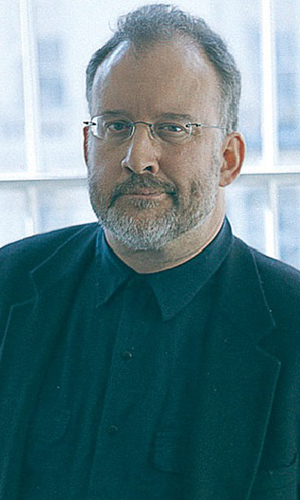Bainbridge, a former Grawemeyer Award winner, was Head of Composition at the Royal Academy of Music in London between 1999 and 2007. In a musical career of over 40 years he has composed music for many of the leading orchestras and ensembles and collaborated with figures including architect Daniel Libeskind and jazz bass player Eddie Gomez.
The award was presented by Luke Bedford, a former student of the composer, at the ceremony for the 2016 British Composer Awards held at the BFI Southbank in London on Tuesday 6 December.
'...some of the most ambitious and daring British works of recent times.'
The Telegraph on Ad Ora Incerta and Four Primo Levi Settings
Simon Bainbridge studied with John Lambert at the Royal College Music and Gunther Schuller at Tanglewood and achieved early success as a composer. A performance at the 1971 Aldeburgh Festival, when he was only 19, led to a commission from by André Previn for a string quartet for the South Bank Summer Music Festival. A series of larger-scale compositions cemented Bainbridge’s reputation in the 1980s and 90s, among them the Fantasia for Double Orchestra (1983), Double Concerto (1990), the horn concerto Landscape and Memory (1995) and Three Pieces for Orchestra (1998).
In 1997, Bainbridge won the Grawemeyer Award for his orchestral song cycle Ad Ora Incerta, settings of poetry written by Primo Levi in the years immediately following World War Two and reflecting on the Holocaust. The piece was subsequently recorded and released by NMC Recordings.
In 2000, the BBC commissioned him to write a short celebratory work to mark the seventieth anniversary of the BBC Symphony Orchestra. The resulting piece, Scherzi, was described by The Times as a ‘whispering whirlwind of fluttering strings, with splashes of plucked and percussive colour’, and was later featured at the 2005 Last Night of the Proms.
The premiere of Chant in 1999 marked a new direction for the composer, exploring the spatial aspect of musical performance with the voices of the BBC Singers being electronically manipulated and spread around the interior of York Minster to surround the audience. In an even more ambitious development of this concept, in 2006 Bainbridge collaborated with Daniel Libeskind to create a piece intended to exploit the aural possibilities presented by the architect’s structures. The resulting piece, Music Space Reflection, was premiered at the Imperial War Museum North in Manchester, followed by performances in Copenhagen, London and Toronto
In recent years, Bainbridge has composed works for the Hilliard Ensemble and Arditti Quartet (Tenebrae), the US-based Gramercy Trio (Piano Trio) and for the thirtieth anniversary of the Endymion Ensemble (Two Trios). The composer returned to the BBC Proms in 2012 with a substantial new work inspired by Bosch’s The Garden of Earthly Delights for mezzo-soprano and countertenor soloists, vocal ensemble and instruments set to a specially-written libretto by John Ross. Bainbridge’s most recent work, String Quartet No. 2, was premiered by the Benyounes Quartet in November 2016.
Between 1999 and 2007, Simon Bainbridge was Head of Composition at the Royal Academy of Music in London, receiving a Professorship from the University of London in 2001. He remains on the faculty of the composition department at the RAM as Senior Professor in Composition. He has taught and lectured at the Juilliard School in New York, the Boston Conservatory of Music, Yale University and the New England Conservatory of Music. In 2009, he held a residency at Yonsei University in Seoul, South Korea.





